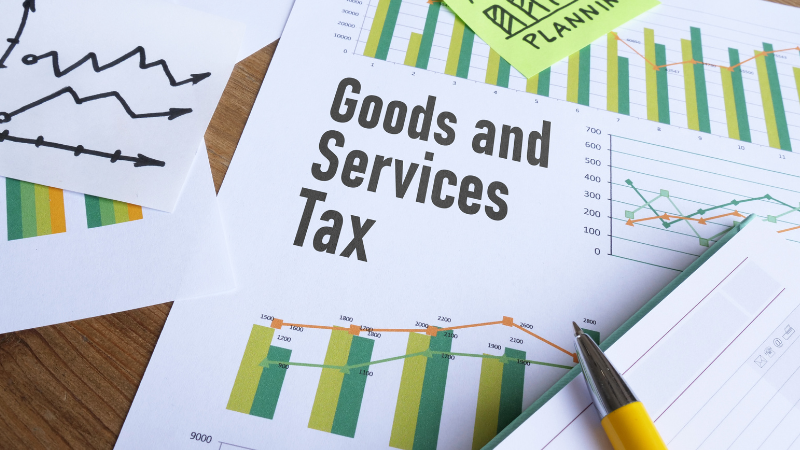Key recommendations of the 54th GST Council meeting

Introduction:
The 54th GST Council meeting, held on September 9, 2024, brought several key recommendations aimed at improving compliance, rationalizing tax rates, and enhancing trade facilitation. These decisions are expected to benefit a wide range of industries while simplifying the overall GST framework. Below is a detailed summary of the most important recommendations.
1. Reverse Charge Mechanism (RCM) on Metal Scrap
One of the significant recommendations was the introduction of RCM on the supply of metal scrap by unregistered persons to registered persons. This ensures that the tax liability shifts to the buyer, preventing potential tax evasion. Even if the supplier eventually registers for GST, the buyer will be liable to pay the tax under RCM. More details can be found on the GST Council page and the Government of India’s Central Board of Indirect Taxes and Customs (CBIC) website.
2. GST Rate Changes
Several amendments were made to GST rates across different sectors. For instance, the GST rate on certain cancer drugs like Trastuzumab Deruxtecan and Osimertinib has been reduced from 12% to 5%, which will significantly ease the burden on patients. Additionally, the GST on namkeens and extruded food products was brought down from 18% to 12%. For more information, refer to the ICAI website on GST.
3. Exemptions for Research and Development Services
The Council granted exemptions on the supply of research and development services by government entities and research associations, provided they are funded by government or private grants. This exemption is in line with the government’s goal of promoting innovation. You can check the CBIC website for further details.
4. E-Invoicing and Invoice Management System
The Council recommended launching a pilot project for B2C e-invoicing, along with the introduction of an Invoice Management System (IMS) and new ledgers like the RCM ledger and Input Tax Credit Reclaim ledger. These technological interventions are expected to reduce errors in claiming input tax credit and improve overall tax reconciliation. For official details, refer to the GST Portal.
5. GST on Life and Health Insurance
A Group of Ministers (GoM) has been formed to study the issues surrounding GST on life and health insurance. The GoM is expected to submit its report by October 2024, after which the Council may decide on potential tax rate reductions. More information can be found on the Government of India Finance Ministry website.
6. Transportation of Passengers by Helicopter
The Council reduced the GST on seat-sharing in helicopter services from 18% to 5%, primarily aimed at religious pilgrimage and tourism. However, chartered helicopter services will continue to attract 18% GST. You can read the related circulars on the CBIC website.
7. GST on Renting of Commercial Property
Renting of commercial property by an unregistered person to a registered person will now be subject to RCM. This measure was introduced to curb revenue leakage and simplify compliance for businesses. The official guidelines on this can be found on the GST Council’s website.
8. Waiver of Interest and Penalty
The Council recommended the waiver of interest and penalties for tax demands under Section 73 of the CGST Act for FY 2017-18, 2018-19, and 2019-20. The effective date for the amnesty scheme is November 1, 2024, and the benefits will be available until March 31, 2025. You can find more information on this amnesty scheme on the Ministry of Finance’s GST portal.
9. GST on Affiliation Services
The Council granted exemptions on affiliation services provided by state and central educational boards to government schools, while keeping the GST rate on affiliation services between universities and their constituent colleges at 18%. More details are available on the ICAI GST page.
10. Import of Services by Foreign Airlines
The Council also recommended exempting the import of services by foreign airline establishments from their related entities, provided these services are without consideration. This is expected to streamline international aviation-related services. Further updates can be found on the CBIC GST website.
Conclusion
The 54th GST Council meeting reflects the government’s ongoing efforts to simplify GST regulations, enhance ease of doing business, and rationalize tax rates in critical sectors like healthcare, aviation, and food products. These recommendations, once implemented, are expected to foster a more efficient tax compliance environment across India, benefiting businesses and individuals alike. The next GST Council meeting is anticipated in November 2024, where additional amendments and recommendations may be discussed to further refine the GST landscape.
For more information on GST and the latest updates, visit the GST Council’s official website and the CBIC portal.
